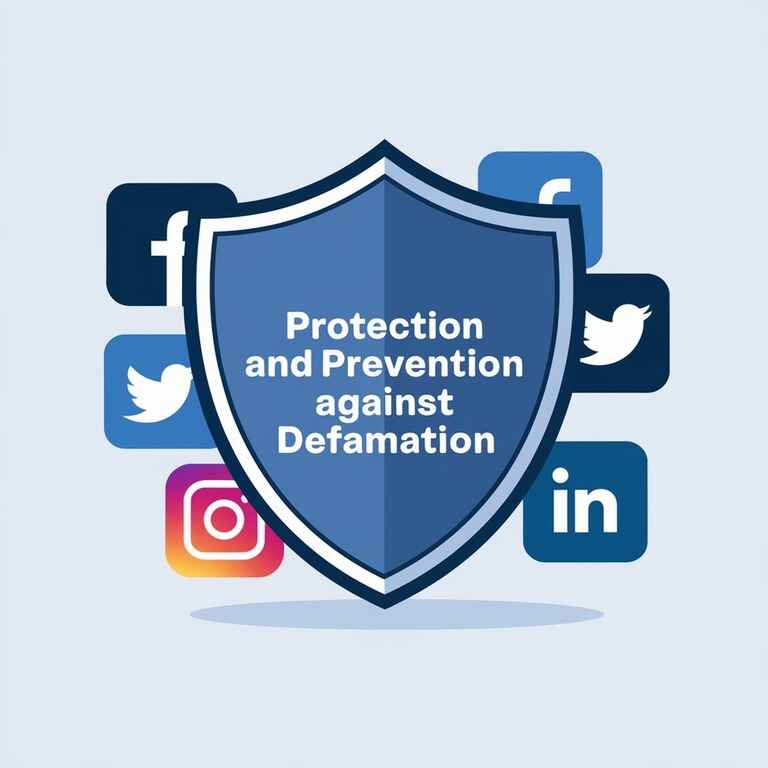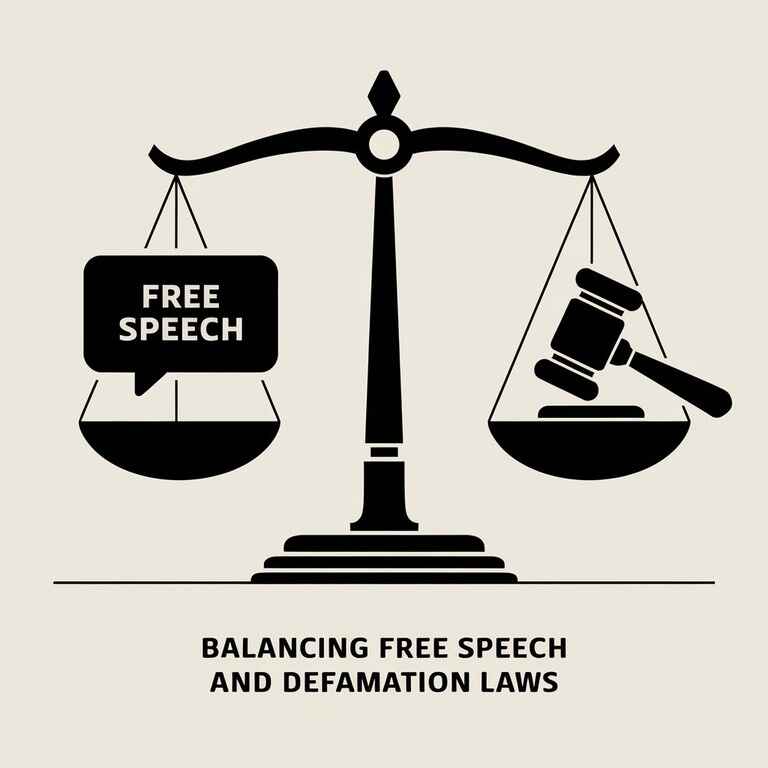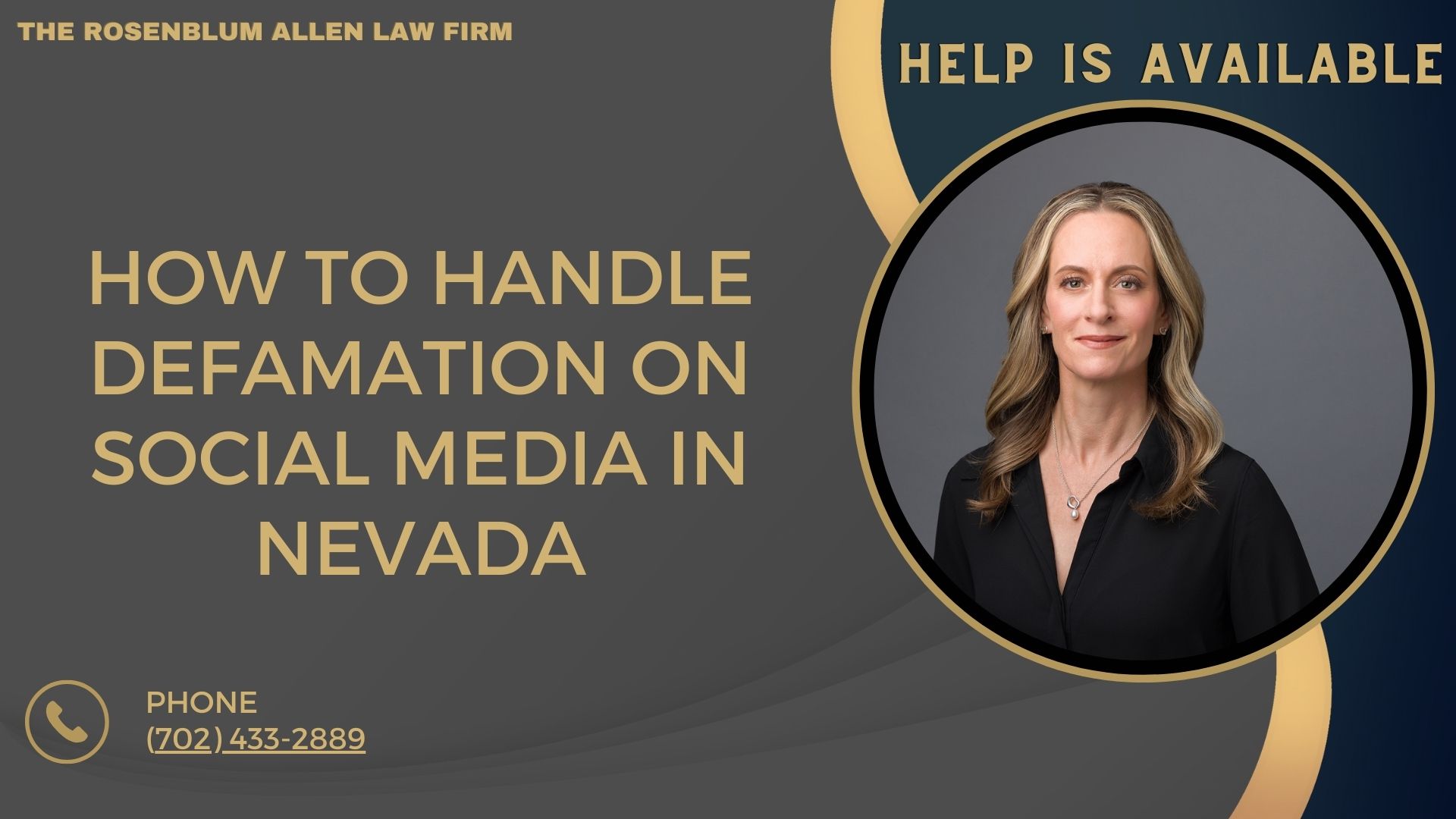Social media has revolutionized how we communicate but has also created new challenges, including the rise of social media defamation. Social media defamation occurs when false and damaging statements are published online, harming an individual’s or a business’s reputation.
Addressing this issue is vital in today’s digital landscape, where information spreads rapidly and can lead to serious legal and personal consequences. This article explores social media defamation, its legal framework, how to identify it, and steps to protect yourself.
 What Is Social Media Defamation?
What Is Social Media Defamation?
Definition of Defamation
Defamation is a false statement presented as a fact that causes harm to an individual’s or entity’s reputation. It is divided into two main categories:
Libel
Written or published defamatory statements, including those shared on social media platforms.
Slander
: Spoken defamatory statements, which are less common on social media but may occur in live-streamed content or videos.
How Defamation Applies to Social Media
Social media has blurred the lines between personal and public speech. Defamation on these platforms often involves posts, comments, or messages visible to a large audience, amplifying their impact. A defamatory statement on social media typically:
- Contains false information.
- It is presented as a fact (not an opinion).
- Causes measurable harm to the reputation or livelihood of the victim.
Examples of Defamation on Various Platforms
- Facebook and Instagram: Posts falsely accusing someone of criminal activity.
- Twitter: Tweets spreading harmful misinformation about an individual or business.
- YouTube and TikTok: Videos making false claims about a person’s character or actions.
- Review Websites: Fake reviews damage a business’s reputation.
Legal Framework for Social Media Defamation
Overview of Defamation Laws
Defamation laws vary by jurisdiction but aim to balance protecting reputations with upholding free speech. Key considerations include:
United States
: Defamation cases must prove the statement was false, caused harm, and was made with negligence or malice.
International Laws
: Countries like the UK and Australia often have stricter defamation laws, with fewer protections for free speech.
Free Speech Versus Defamation
While freedom of expression is protected by laws like the First Amendment in the U.S., it does not cover defamatory statements. Courts often weigh the value of free speech against the harm caused to victims.
Statute of Limitations for Defamation Cases
The time frame for filing a defamation lawsuit varies by location. In most U.S. states, the statute of limitations is 1-2 years from the date of the defamatory statement. Acting promptly is crucial to preserve legal options.

Common Types of Social Media Defamation
False Statements Damaging Reputation
Posts or comments falsely accusing someone of unethical behavior, such as dishonesty, theft, or fraud, often lead to reputational damage.
Harassment and Personal Attacks
Defamatory statements can also involve targeted harassment, where false claims are repeatedly spread to harm the victim emotionally and socially.
Spreading False Reviews About Businesses
Competitors or disgruntled customers may post fake negative reviews, affecting a business’s revenue and customer trust.
Misinformation Leading to Harm
Statements spreading false information, such as unfounded accusations of criminal activity, can cause severe social and legal repercussions for victims.
How to Identify Social Media Defamation
Signs of a Defamatory Statement
Not every unpleasant comment or falsehood on social media counts as defamation. To qualify, a statement typically must meet these criteria:
False Statements Presented as Facts
: The statement must be demonstrably untrue. Opinions, even if harsh, don’t usually qualify as defamation. For example, “I think their business is terrible” is an opinion, but “They steal from customers” could be defamatory if untrue.
Harmful Impact on Reputation or Business
: The statement must cause measurable harm. This could be losing clients, facing social ridicule, or enduring emotional distress.
Public Dissemination of the Statement
: The content must be shared publicly where others can see it, not in a private message.
Distinguishing Between Defamation and Opinion
No matter how harsh, free speech laws generally protect opinions. To determine if something is defamatory, ask:
- Is it presented as a fact?
- Can the statement be proven true or false?
- If the answer to both questions is “yes,” it could be defamatory. For example:
- | Statement | Opinion or Defamation? |
- |——————————-|————————————-|
- | “They are the worst company!” | Opinion (personal belief) |
- | “They scam customers daily.” | Potentially defamation (false fact)|
Examples of Notable Defamation Cases on Social Media
- A small business sues a user who posts fake reviews, claiming poor service they never received.
- A celebrity takes legal action after false accusations about their personal life go viral on Twitter.
- These examples show the real-life impact of defamatory statements and how courts can step in to address them.

Steps to Take if You’re a Victim of Social Media Defamation
Gather Evidence
Documentation is critical if you’re pursuing a defamation claim. Make sure to:
Take Screenshots
: Capture the defamatory post, comment, or message. Include timestamps and any relevant context.
Save URLs
: Record links to the defamatory content in case they get deleted.
Collect Witness Statements
: If others saw the content, ask them to document what they observed.
Contact the Platform
Social media platforms have systems in place to address harmful content.
Report the Content
: Use the platform’s reporting tools to flag the defamatory statement.
Request Removal
: Write to the platform’s support team explaining why the content violates their policies.
- Many platforms have specific rules against false and harmful statements.
Legal Remedies for Social Media Defamation
Filing a Defamation Lawsuit
When informal solutions don’t work, legal action may be necessary.
Steps to File a Case:
- Work with your attorney to draft a complaint.
- Provide evidence proving the statement was false, harmful, and made negligently or maliciously.
- Participate in court proceedings to present your case.
Burden of Proof:
- Plaintiffs must demonstrate that the defendant’s statement meets all the elements of defamation.
- Proving “actual malice” (intent to harm) is also required in cases involving public figures.
Cease-and-Desist Letters
Sometimes, a formal letter demanding the removal of defamatory content and cessation of further harm is enough to resolve the issue. This option is less costly and avoids litigation.
Monetary Damages and Compensation
Victims of defamation may seek financial compensation for:
Actual Damages
: Loss of income, business opportunities, or emotional distress.
Punitive Damages
: Intended to punish the offender and deter future defamation.

Preventing Social Media Defamation
Best Practices for Individuals
The best way to handle social media defamation is to avoid it altogether. While you can’t control what others say, you can take steps to reduce your risk of becoming a target.
Monitor Your Online Presence
: Regularly check your name on social media and search engines. Set up Google Alerts to get notified if your name is mentioned.
Protect Your Privacy
: Keep sensitive personal information off public profiles. Adjust your privacy settings to control who sees your posts.
Respond Diplomatically
: If someone spreads false information about you, address the issue calmly and factually. Escalating the situation can make things worse.
Best Practices for Businesses
Businesses are frequent targets of social media defamation, primarily through fake reviews or customer complaints. Proactive measures can help:
Build a Strong Brand Reputation
: Consistently deliver excellent products or services. A positive reputation makes defamatory statements less believable.
Encourage Positive Reviews
: Ask satisfied customers to leave reviews. Positive feedback can overshadow any defamatory comments.
Address Complaints Promptly
: Respond professionally to criticism, even if it seems unfair. Ignoring or reacting poorly can fuel more negativity.
Example: Handling a Negative Review
Imagine your business receives a review falsely claiming, “This restaurant served spoiled food.”
Step 1
: Respond politely, asking the reviewer to provide details.
Step 2
: If the claim is false, explain why (e.g., “We have strict food safety protocols in place.”).
Step 3
: Report the review to the platform if it violates their guidelines.
The Role of Social Media Platforms
Responsibilities of Platforms in Managing Defamatory Content
Social media platforms play a crucial role in combating defamation. They have policies and tools to address harmful content:
Community Guidelines
: Most platforms prohibit defamatory, false, or harmful content. These rules are often detailed in terms of service agreements.
Enforcement Policies
: Platforms use automated systems and human moderators to identify and remove defamatory posts.
Content Moderation and Algorithms
While platforms strive to monitor content, challenges remain:
Automated Systems
: Algorithms scan for harmful content but can miss subtle or context-specific defamation.
User Reporting
: Platforms rely on users to report defamatory content. However, response times can vary; not all reports lead to action.

Balancing Free Speech and Defamation Laws
Importance of Protecting Freedom of Expression
Free speech is a cornerstone of democratic societies. It allows individuals to express opinions, criticize authority, and share ideas. However, this right is not absolute. Defamatory statements can cause actual harm, and the law balances these competing interests.
Ensuring Accountability for Harmful Statements
When someone spreads false and harmful information, accountability is essential. Defamation laws help:
- Protect individuals and businesses from reputational damage.
- Serve as a deterrent against spreading malicious falsehoods.
- Provide legal recourse to those affected.

Breaking It All Down
Social media defamation is a growing challenge in today’s digital world. False and harmful statements online can damage reputations, disrupt lives, and hurt businesses. Understanding social media defamation and how it’s addressed legally is the first step to protecting yourself.
If you become a victim, remember to act quickly. Document the evidence, report the content to the platform, and seek legal advice if necessary. Legal remedies, from cease-and-desist letters to lawsuits, are available to hold offenders accountable and recover damages.
Prevention is equally important. Whether you’re an individual or a business, monitoring your online presence, building a positive reputation, and addressing issues calmly can reduce the risk of defamation. Social media platforms also play a role, but their limitations mean individuals must stay vigilant.
Ultimately, balancing free speech with protection from defamation is vital. By understanding your rights and the legal options available, you can safeguard your reputation in the ever-changing social media landscape.
If you’ve been impacted by social media defamation, don’t hesitate to seek help. Your reputation is worth protecting.

Frequently Asked Questions
What is social media defamation?
Social media defamation occurs when someone makes a false statement about a person or business on a social media platform, causing harm to their reputation. These statements are usually presented as facts and must be proven false to qualify as defamation.
What's the difference between libel and slander?
- Libel: Written or published defamatory statements, including posts, comments, or videos on social media.
Slander: Spoken defamatory statements may occur during live streams or in recorded videos.
How can I tell if a statement is defamatory?
To qualify as defamation, a statement must:
- Be false.
- Be presented as fact, not opinion.
- Harm your reputation or business.
- Be publicly shared where others can see it.
Can opinions be defamatory?
No, opinions are generally protected as free speech. However, if an argument is phrased as a fact (e.g., “They committed fraud” versus “I think they’re untrustworthy”), it could be considered defamatory if false.
What should I do if I'm a victim of social media defamation?
- Gather evidence: Take screenshots, save URLs, and document witnesses.
- Report the content: Use the social media platform’s reporting tools.
Seek legal advice: Consult an attorney to explore your options, including lawsuits or cease-and-desist letters.
Can I sue someone for social media defamation?
You can file a defamation lawsuit if you prove the statement was false, caused harm, and was made negligently or maliciously. Consult an attorney to assess your case.
What damages can I recover in a defamation lawsuit?
You may be entitled to:
- Actual damages: Compensation for lost income, business opportunities, or emotional distress.
Punitive damages: Additional amounts meant to punish the offender and deter future misconduct.
Are social media platforms responsible for defamatory content?
Platforms are not usually liable for user-generated content due to protections like Section 230 of the Communications Decency Act. However, they are responsible for enforcing their community guidelines and removing harmful content when reported.
How can I protect myself from social media defamation?
- Monitor your online presence regularly.
- Protect your privacy by limiting what personal information you share publicly.
- Address false statements calmly and factually when possible.
How long do I have to file a defamation lawsuit?
The statute of limitations varies by location. In most U.S. states, you have 1-2 years from the date of the defamatory statement to file a claim.
Can businesses take legal action against fake reviews?
Yes, businesses can pursue legal action against individuals who post fake or defamatory reviews. Such reviews can cause reputational damage and financial loss, making them actionable under defamation laws.
Have more questions about social media defamation? Consult a legal expert to understand your rights and options better.

If you’re dealing with legal concerns beyond medical consent issues, The Rosenblum Allen Law Firm offers a wide range of legal services to help you. Here are some additional resources that may be helpful, with links to learn more:
Criminal Defense Attorneys
Comprehensive representation for all criminal defense matters, protecting your rights and fighting for the best possible outcome.Las Vegas DUI Lawyer
Experienced in handling DUI charges, ensuring you receive a fair trial and working to minimize the consequences.Domestic Violence Lawyer Las Vegas
Skilled legal support for domestic violence accusations, focusing on protecting your reputation and legal rights.Drug Possession Lawyer
Representation for drug-related charges, from possession to trafficking, with a focus on reducing or dismissing charges.Sex Crimes Attorney
Aggressive defense for sex crime allegations, providing sensitive and professional guidance through these complex cases.CPS Defense Attorney
Legal advocacy for parents facing Child Protective Services (CPS) investigations or accusations of abuse or neglect.Misdemeanor Lawyer
Assistance with misdemeanor charges, helping you navigate the legal process and mitigate potential penalties.Las Vegas Warrant Defense Attorney
Guidance for dealing with outstanding warrants, including strategies for clearing your record or minimizing impacts.Las Vegas Probation Violation Attorney
Support for probation violations, working to keep you out of jail and resolve the situation quickly.Theft Crime Defense Lawyer
Defense against theft charges, from petty theft to more serious burglary and robbery accusations.Kidnapping Lawyers
Representation for kidnapping charges, focusing on protecting your rights and building a strong defense.Juvenile Defense Lawyers
Advocacy for juveniles facing criminal charges, helping to protect their future and minimize legal repercussions.Firearms Lawyer Las Vegas
Legal help for firearms-related charges, from unlawful possession to more serious weapon offenses.
These resources are here to help you navigate challenging legal situations. For personalized advice, reach out to The Rosenblum Allen Law Firm directly.

Offsite Resources for You
Here are seven helpful offsite resources related to social media defamation that readers may find useful:
Electronic Frontier Foundation (EFF)
EFF provides resources on free speech, online rights, and how to handle issues like defamation in the digital space.Cyberbullying Research Center
The Cyberbullying Research Center offers insights into online harassment, including defamation, and practical advice for addressing these issues.Better Business Bureau (BBB)
The BBB provides guidance on handling fake reviews and protecting your business’s reputation online.Stopbullying.gov
Stopbullying.gov focuses on addressing online harassment and defamation, with resources for individuals and families.Digital Media Law Project (DMLP)
The DMLP offers legal guides on online speech and defamation, including advice for bloggers and social media users.Public Citizen
Public Citizen advocates for consumer rights and free speech while providing resources on legal protections against harmful online content.National Cybersecurity Alliance (StaySafeOnline)
StaySafeOnline focuses on internet safety, including how to protect your reputation and respond to defamation on social platforms.
These resources provide valuable information and support for those navigating social media defamation issues.

A Special Message from Our Lead Attorney, Molly Rosenblum Allen, Esq

Thank you for taking the time to explore these resources. I hope you found them helpful in understanding more about social media defamation and your options. If you’re ready to take the next step, please call me and my team at (702) 433-2889. We’re here to help you navigate your situation and work toward the best possible outcome. Let’s get the ball rolling!





